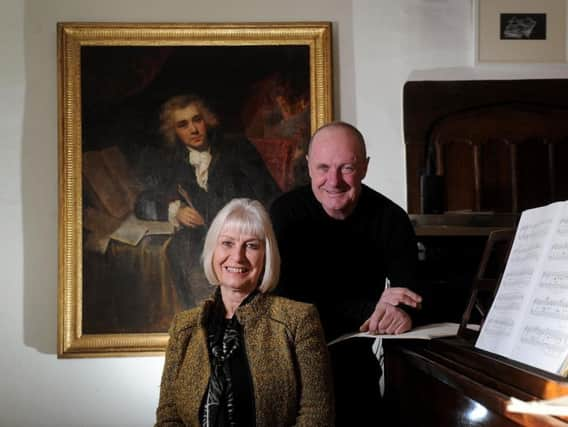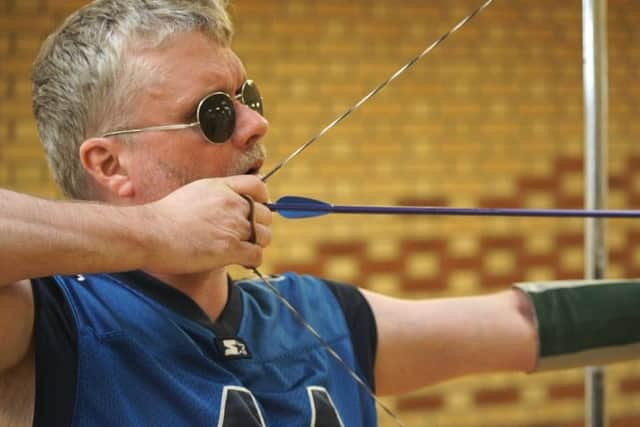How William Wilberforce's legacy lives on in York through trust supporting people with sight and hearing loss


William Wilberforce did not live to see royal assent being granted to the act that would abolish slavery in the British empire in 1833.
But the Hull-born MP and social reformer had been influential in its development, successfully spearheading the parliamentary campaign that culminated in the abolition of the British slave trade in 1807 and supporting the drive for full emancipation in British colonies, finally achieved 26 years later and a month after his death.
Advertisement
Hide AdAdvertisement
Hide Ad

Today, his footsteps continue to inspire the work of the Wilberforce Institute at the University of Hull. Since its founding in 2006, it has been a centre of research into historical slavery whilst leading the fight to root out contemporary exploitation in its work with governments and organisations across the globe.
But the Wilberforce legacy extends beyond the slave trade, not least in the city of York, where The Wilberforce Trust, set up in his memory, supports people with sight and hearing loss.
The charity began life as The Wilberforce Memorial in the months after Wilberforce’s death and grew out of a desire to honour him in a way that was befitting to his philanthropic nature. Its founding members decided to build a school for the education and training of “the indigent blind” at King’s Manor in York.
Advertisement
Hide AdAdvertisement
Hide AdFast-forward nearly 190 years and today the trust caters for people with visual and hearing impairments by helping them to build confidence, maximise their capabilities and live as independently as they can within their communities.


And now, for what is believed to be the first time in its history, the charity is in contact with one of Wilberforce’s ancestors - his great, great, great, great grandson, who shares his name.
William, who owns Markington Hall in Harrogate, the estate which passed to the Wilberforce family in 1731, has met the trust’s chief executive Philippa Crowther.
“It’s been really interesting because I have been able to hear a lot more about Philippa’s plans for the trust,” he says. “I was really impressed by how it has managed to push forward in a positive way. My view was that anything I could do to help, I wanted to.”
Advertisement
Hide AdAdvertisement
Hide AdKey to the trust’s current development is a planned £7 million housing project, which it aims to have complete in 2021, with the support of grants and fundraising donations.
The vision is to build 30 apartments off Tadcaster Road in York, alongside what it is calling a new ‘living and learning zone’ - a communal area with a sensory garden and community cafe, as well as space for social activities, skills courses and professional advice and support.
To help it to achieve the ambition, the trust, which currently has nine shared houses across York and Tadcaster, catering for between 25 and 30 tenants, plans to sell off six of its homes in York.
“The new build means we can reach far more families and communities,” says Philippa, who has been chief executive since 2013. “At the moment, a lot of tenants live in adapted housing but these are being specially-designed and purpose built for people with sight or hearing loss.”
Advertisement
Hide AdAdvertisement
Hide AdMore than 20,000 people in the city have hearing loss and 6,000 live with sight loss. Philippa says it is crucial the trust adapts and provides as many services as it can to meet their needs.
“It’s super the housing that we’ve currently got and it’s served us very well, but people want their own front door,” she explains. “They also want their own space and a choice of who they live with and don’t live with...
“Today [the housing] is fit for purpose, it works, but it is incumbent on a trust like this to make sure it provides for the future.
“It’s not just about surviving as a charity and delivering services today, it’s about what the future looks like for people.”
Advertisement
Hide AdAdvertisement
Hide AdThe accommodation and learning zone is a “coup for York”, she says. “I think it will allow people to gain confidence, it will help them gain skills...The amount of people that are employed with sight loss is absolutely miniscule. It needs to grow and overall, disability for employers needs to be considered far more heavily.
“It will also help and enable them to have friendships, meet people and integrate far more into communities...It’s a one-off facility that has been well-needed.”
Today’s technological advancements mean everything from automated door entry systems to talking white goods are now available to help people live more independently. And the new Wilberforce Trust development will have technology at its heart.
Advertisement
Hide AdAdvertisement
Hide Ad“There are challenges to these things and there’s a lot for people to learn,” Philippa points out. “The future looks very different and far, far more technology driven, but also with the support of trained people.”
The trust has just over 100 staff, the majority of which are care workers. About 70 volunteers also give their time to support its work or get involved in fundraising efforts. And in 2018, York-born actress Dame Judi Dench became the charity’s patron.
The Oscar winner has spoken openly about living with age-related macular degeneration, a condition that affects vision and can make everyday tasks such as reading and recognising faces particularly challenging. “I felt that we needed somebody to come on board who really understood sight loss,” says Philippa.
“We looked at people who we thought could be a patron for us and we spoke to Dame Judi Dench, who is a Yorkshire lady, and she was delighted to be able to support us.
Advertisement
Hide AdAdvertisement
Hide Ad“It’s fantastic to have her because she’s so well known, she’s so successful and she’s a local lady who has had an amazing career. To be an actress and do the parts that she does, now with sight loss and still continuing to do that, really shows that you can achieve what you want to.”
Philippa sees the trust as an enabler - its role to design and run services that help blind, partially sighted and hearing impaired people to thrive in modern society.
"There’s no point designing services that people don’t want because you think that’s what they want. You need to design services that help people to live in today’s world,” she says. “It’s about keeping up with the 21st century and what people really need.
“One of the Wilberforce Trust’s real strengths is that we can move with the times and evolve to provide the things people need of that time. It’s been a fantastic trust in terms of being able to adapt to the future and with my leadership, hopefully that’s come into another era with new housing, new technology and new skills that people learn.”
Advertisement
Hide AdAdvertisement
Hide AdAs for William, he hopes to become more involved in the charity going forward. “It’s nice to know the trust is still thriving,” he says. “It’s a positive way to spend my time if I’m able to help it any way.”